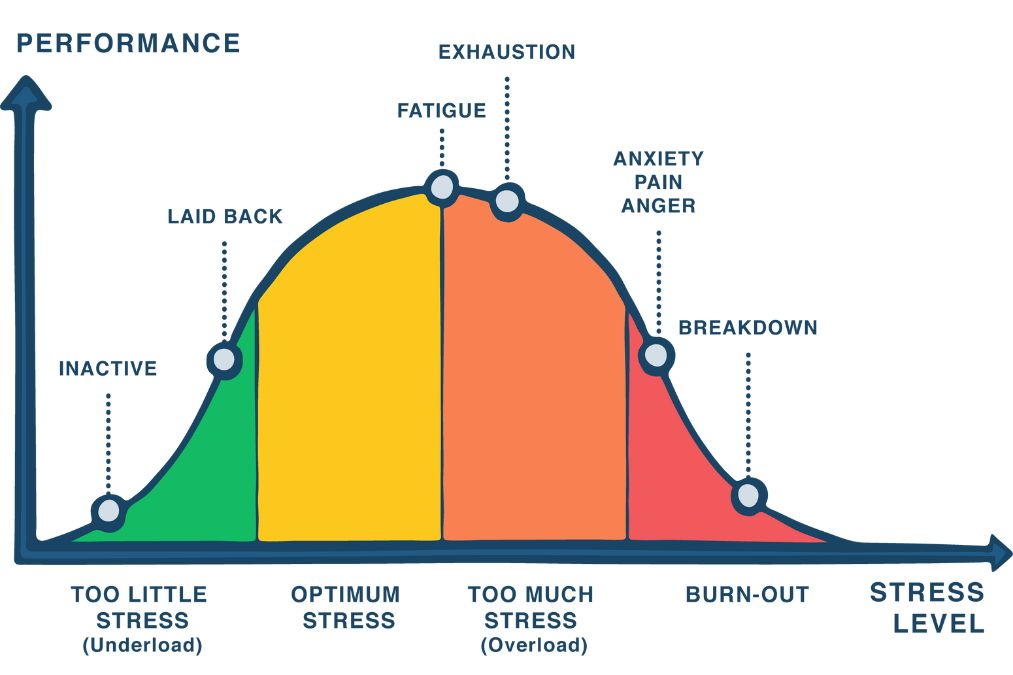
Six things we’ve noticed recently about stress
April is Stress Awareness Month. Here, six members of our team share short reflections on the subject based on their engagement with clients around the world. From bishops to aid workers, B Corporations to small charities, CEOs to interns, here’s what we’ve seen ……
Graham Fawcett, a psychosocial practitioner, says: “There are three main types of stressors we tend to notice in our clients: traumatic stressors (i.e. experiencing life-threatening situations either personally or indirectly); chronic stressors (i.e. persistent challenges such as a lack of privacy, mobility or healthcare); and organisational stressors (i.e. issues related to management or team members, workload or resources). related issues). Often, the support they need is not necessarily counselling or therapy, but more about making their manager aware of what they are going through and expressing solidarity in a thoughtful way”.
Leanne Marega, CEO: “At the moment, many people seem to struggle with stress. A recent study in the UK found that a quarter of adults feel unable to manage stress. This mirrors our global experience. If you are one of these people, try to realise that you can choose to ‘respond’ to stress rather than ‘react’. By pausing to recognise your feelings, moving away from the source of the stress and breathing slowly, it can help your rational brain take control of the situation, tell your body that “it’s OK to relax”, and from there choose how you want to respond.”
Ben Porter, Head of Psychosocial and Health: “Stress can be a good thing. But when stress goes on for too long and becomes distressing, it’s a problem. It takes a lot of awareness to know where you are on the ‘stress curve’, but it can be helpful to look at it occasionally and reflect on where you are. It’s important to allow some leeway and not work more than 80 per cent of your capacity on a regular basis. A change or crisis may be coming, so you need a buffer to stay healthy.”

Karen Abbs, Chief Prosperity Officer, says: “Gratitude relieves stress. It may come as no surprise that an attitude of gratitude contributes to a sense of well-being and happiness. But it can also improve the quality of your sleep and your immune system. It strengthens relationships, makes people friendlier, and increases resilience in the face of challenges. I think it’s important to remember that gratitude isn’t just an emotion, it’s an action: so take the time to recognise and communicate gratitude to yourself and others.”
Therapist Kristen Guskovict says: “When we feel stressed or threatened, we find it difficult to listen and take in new information. In teams, this makes it harder for people to trust each other, make decisions, solve problems, and get a clear picture of what’s going on. When working in war zones or other dangerous areas, this can put the team at even greater risk. It is therefore vital for employees working in such places to understand stress and how it affects their work.”
Travelling health doctor Ted Lankester says: “My colleagues and I often meet people who have their own business but don’t take the time to do the things we all must do to stay healthy and avoid stress. Things like exercising, relaxing, eating healthy and seeking timely medical support. This can take a toll on their minds and bodies and can lead to personal and relationship stress. It’s like we always say: people seem to spend more time, energy and money on maintaining their cars than they do on their bodies!”
您可能也喜欢

Ways to burn calories on a daily basis (next post)
05/11/2024
What is a catering mini-package?
05/16/2024

